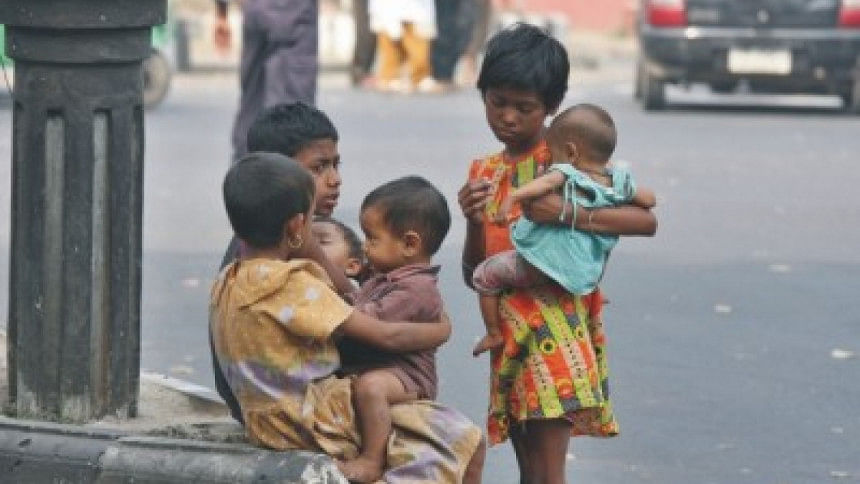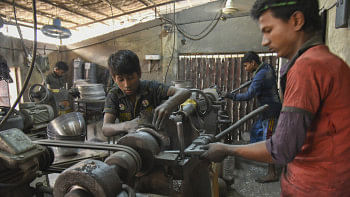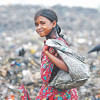Helping street children requires a holistic, evidence-based approach

In Bangladesh, people may not be as exposed to the types of ads that are common in the Global North, seeking support to sponsor a poor child in an impoverished land. The images in those ads, though good for fundraising, are problematic. The child is portrayed in a vacuum, without a family, in a dehumanising way, rather than as a fully sentient human being who experiences joy as well as anguish. It is essential that we acknowledge the horrific situations faced by many street children: violence (including sexual violence), exploitation at the hands of employers, extreme discomfort, chronic hunger, and lack of educational opportunities, among others. But we must also remember that they are human beings. They may have loving families—however incapable they may be of taking proper care of them. These children and their families need support, but it must be delivered respectfully and with an appreciation of the full rights of the children.
Having good intentions towards street children is not enough. We must ensure that our actions are based on evidence of what will benefit them, that we don't simply remove them from the streets so as to rid ourselves of the guilt. We need to question why there are so many children roaming the streets of Bangladesh—more than 34 lakh, according to UNICEF. Why does this situation persist when the country's economy has done so well? In 2021, while just 21 percent of national income went to the bottom 40 percent of Bangladeshis, 27 percent of income went to the richest 10 percent. The added wealth continues to go to the top, and poverty remains widespread at the bottom. Until we address income inequality, it will not help even if the GDP continues to expand.
It is easy to speak in generalities. Far more difficult is to implement programmes and actions that achieve the needed results. In its report "Transformative Action to Accelerate Results for Children in Street Situations in the Decade of Action," UNICEF recommends a number of integrated approaches to the issue, including social protection, ending poverty, preventing family-child separation, improving educational outcomes, strengthening child protection policies and programmes, working with local governments, and investing in evidence-building.
Social protection and poverty alleviation require an ongoing shifting of financial resources from the wealthiest to the poorest. The simplest mechanism is a high tax on the wealthy, which then goes to support well-funded and well-managed programmes to support the poor. One aspect could be to give the same payment to all families to support their children; the rich will always pay vastly more in taxes, but are less likely to object when they themselves are the recipients of the aid.
More complicated is the need to protect children from violence. Evidence-based approaches, not simply the desire to help, are vital. It is also important that the police understand that children are victims, not criminals. Laws to prevent the exploitation of poor children need strong enforcement, which also requires a social pact not to tolerate such activities. The common practice of using poor children as household help, without ensuring their rights, is not compatible with an interest in protecting children.
It is not enough to prevent children from labour exploitation; they also need the education and skills to obtain a decent job. UNICEF emphasises that "children and young people must have access to technical and vocational training and 21st century skills they need for productive lives and work. This in turn will increase and improve the number of quality work opportunities available to youth, while at the same time they will stay protected from violence and exploitation."
The focus on cities and local governments is also complicated, but basically involves ensuring that local governments prioritise and strengthen child protection services. This means putting aside sufficient budget and making the protection of street children and other vulnerable children a priority. In order to enact effective programmes, money must also be set aside for research. The role of civil society is both to provide services to children directly and to hold "local governments accountable to protecting children's rights by promoting active participation of children in the civic discourse." That final phrase bears repeating. Adults don't always understand what is in the best interests of children. Children themselves need to be involved in planning; for instance, my colleagues have used the computer game Minecraft to enable children to give input into an urban design of open public space.
Many street children rightly fear law enforcement and thus wish to hide from surveys. The understandable fear children have of authorities needs to be respected when data collection is undertaken. We need to know not only how many children are on the streets, but also what challenges they face and what interventions can prove effective. Important areas of study include exposure to violence, "access to justice, birth registration, gender equality, child labour, education and reduced inequality." Programmes to assist street children require rigorous evaluation to measure their effectiveness.
It can be more pleasant to indulge in platitudes and generalities while ignoring root causes and effective solutions. But if we really wish to solve the problem, we need to understand it better and acknowledge the role of conventional economics. Assisting street children without simultaneously helping struggling parents, and looking at poverty without simultaneously studying wealth inequality and solutions for it, will get us nowhere. And those children we feel so bad about—even if for a day on World Children's Day—deserve better.
Debra Efroymson is executive director at the Institute of Wellbeing, Bangladesh, and author of 'Beyond Apologies: Defining and Achieving an Economics of Wellbeing.'
Views expressed in this article are the author's own.
Follow The Daily Star Opinion on Facebook for the latest opinions, commentaries and analyses by experts and professionals. To contribute your article or letter to The Daily Star Opinion, see our guidelines for submission.

 For all latest news, follow The Daily Star's Google News channel.
For all latest news, follow The Daily Star's Google News channel. 









Comments